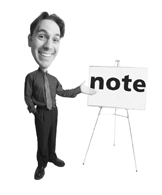What Can You Do with a Database?
| Perhaps the better question would be the following: What can't you do with a database? The most basic feature of databases is that they provide unified storage for all the data related to a particular topic. Rather than scatter information through a series of Word documents, Excel spreadsheets, text files, email messages, and sticky notes, you can bring it all together in a database. A database can hold something as simple as the list of guests for your wedding or something as complex as every customer who has ever visited your e-commerce Web site and every order they've ever placed. Note
But a database can do much more than just store reams of data for you. Here are some of the other capabilities of Microsoft Access that you'll learn about in this book:
The more you work with Access, the more you'll want to work with it. This book will get you up and running quickly. Then the sky's the limit! |
EAN: N/A
Pages: 133
